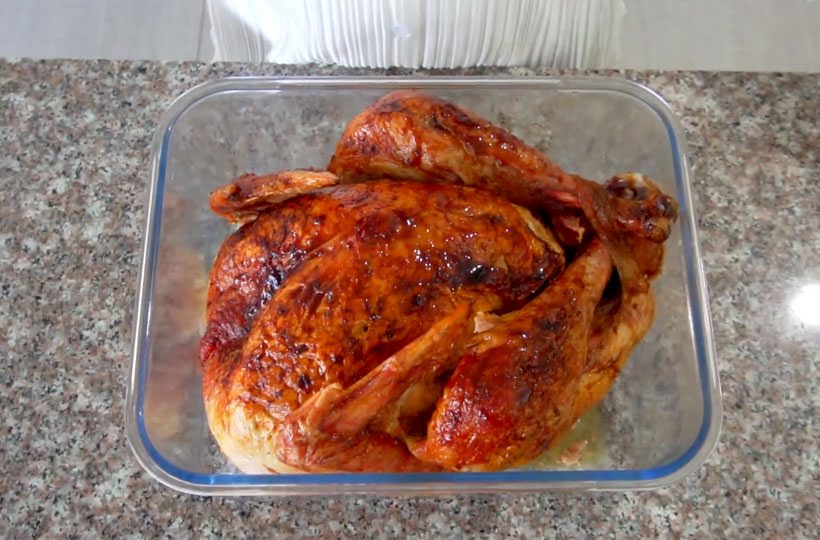Can You Put Glass in the Freezer? Safety Hack to Freeze Without Fear

Yes, you can put glass in the freezer but only if it is freezer-safe and properly cooled.
Last Sunday, I was prepping chicken noodle soup in large quantity and I was ready to stock my freezer for the week. I grabbed a glass jar, poured in the steaming broth and popped it in the freezer hence feeling like a meal prep guru. Then I remembered my friend’s warning: “Wait! Can you put glass in the freezer without it shattering?” Yes because I had already faced a freezer related accident recently.
A few months back I stuffed a hot chili jar in the freezer hence thinking it was no big deal. The next day my freezer literally looked like a crime scene with chili splattered everywhere and it was a hell to clean up! We all have already read about safely microwaving glass, so now I wanted to share everything regarding how to freeze glass jars, containers or tupperware without a kitchen nightmare plus why glass food storage containers are a lifesaver for healthy meals.
What Happens to Glass in The Freezer?
Have you ever thought what happens to glass which it is exposed to extreme cold temperature? Glass can chill in the freezer just fine but it is tricky about how it gets cold. Freezer-safe glass, like borosilicate, stays strong even in icy cold temperatures. Soda-lime glass like some cheap jars might crack if you rush it.
The problem isn’t the cold. It’s fast temperature changes that stress glass out and can create a problem. That’s where things get tricky.

Thermal Shock Is The Main Risk
Thermal shock is what happens when glass flips out from quick temp swings like going from hot soup to a freezing cold freezer. Borosilicate glass, like in Razab glass food containers, handles this better than soda-lime glass. To keep your glass happily safe it's better to cool it slowly before freezing.
In simpler words it's like giving your glass a little tender loving care before its big freezer nap!
Types of Glass and Their Freezer Suitability
Like we already read above that not every glass is freezer friendly therefore it's better to understand different glass compatibility with temperature changes.
|h3| Borosilicate Glass vs. Soda-Lime Glass
Borosilicate glass is the freezer’s most valuable player i.e. its tough and ready for thermal shock. You will see it in Razab glass tupperware and newer pyrex dishes. Soda-lime glass which is mostly found in most mason jars or budget bowls is more likely to crack in the cold.
So when it comes to answering the most stressing out question for food freezing, that you can put glass containers in the freezer here is the good news. For meal preppers, borosilicate glass containers are the way to go for freezing soups or lasagna.
Curious about different baking containers? Explore Choosing the Right Baking Pan: Glass Loaf Pan vs. Metal
Tempered Glass and Freezer Compatibility
Tempered glass which is most likely found in some kitchen bowls can sometimes be freezer-safe but isn’t as strong as borosilicate. Check for a “freezer-safe” label before you trust it. If there’s no label I’d suggest not to risk your favorite casserole dish.\

How to Identify Freezer-Safe Glass?
Not sure if your glass container can handle the freezer? Try these steps:
-
Flip it over and look for a “freezer-safe” mark or snowflake icon.
-
Check the box or brand’s website for freezer safety info.
-
Know your glass: Borosilicate is usually safe; soda-lime needs extra care.
-
Test it out with water, leaving space and freeze for a few hours. If it holds, you are good to go with anything in it.
No “freezer-safe” label? Better skip it to save your soup!
Do’s and Don’ts of Freezing Glass
If you want to know the answer to the question that can you put glass jars in the freezer, here is how to freeze glass jars and containers like a pro:
-
Do: Let food cool to room temp before freezing.
-
Do: Leave about an inch of space for liquids to expand.
-
Don’t: Shove hot glass dishes into the freezer.
-
Don’t: Use vacuum-sealed lids; go for airtight ones instead.
To easily understand this take a look at the table below
|
Glass In Freezer Tips |
What to Consider |
|
Safety Guidelines for Freezing Glass Containers |
Use freezer-safe glass (like borosilicate). |
|
Do’s and Don’ts of Freezing Glass |
✅ Use tempered or freezer-safe containers. |
|
Tips for Avoiding Cracks or Explosions |
Use containers with straight sides. |
|
Proper Way to Cool and Store Food in Glass |
Let food cool to room temp. |
Easy Tips for Avoiding Cracks or Explosions
Stick your glass in the fridge for a couple hours before freezing to ease it into the cold. Use containers with airtight lids in order to avoid pressure buildup. Wrap the glass mason jars in a towel if your freezer is crammed.
Do not stack heavy stuff on top or you might chip your containers.

Proper Way to Cool and Store Food in Glass
Let hot food sit out for 30-60 minutes, then chill it in the fridge for 2-3 hours before freezing. Fill glass storage containers only ¾ full so liquids don’t push too hard. Grab a marker and write dates on lids to keep track of your meal prep.
What Works and What Doesn’t For Home Cooks
My neighbor Lisa runs a small meal prep business. She freezes veggie soup in glass meal prep containers every week. She cools it first, leaves space and her freezer’s full of ready-to-go meals. No cracks, just yum!
Another friend, Jenna, uses borosilicate glass for her lasagna prep with perfect portions, no freezer burn.
Common Mistakes to Avoid
Tom, another friend of mine, froze hot curry in a soda-lime glass bowl and guess what, it shattered and his freezer smelled like a spice market for weeks. Always use freezer-safe glass and cool food first.
Best Foods to Freeze in Glass Containers
While we now know best glass containers for freezing, one question to understand is that what kind of foods are okay to freeze. Glass food containers are great for freezing things like:
-
Soups and stews (chili, broth)
-
Cooked rice, pasta or quinoa
-
Fresh fruits (berries, mango)
-
Casseroles or baked goods
-
Sauces (pesto, marinara)
Want more freezer ideas and details regarding this topic? There is more! Check out our guide, Best Foods to Freeze in Glass Containers, for tips on soups, desserts and more!

How to Choose the Right Glassware for Freezer Storage
Features to Look For
Pick glass containers with these features if you are not sure is it safe to freeze glass:
-
Thick Walls: Borosilicate glass for extra strength.
-
Airtight Lids: Keep freezer burn away but let pressure escape.
-
Stackable Shape: Save space in your freezer.
Pro move: Get containers with lids you can write on for easy labeling!
Product Recommendations
Razab glass storage containers are a meal prepper’s dream borosilicate, BPA-free, freezer-safe, with airtight lids that keep food fresh. They’re awesome for soups, casseroles, or smoothie packs. Other great options include Pyrex glass tupperware and Ball freezer-safe mason jars.
Need more picks? See our Top 10 Freezer-Safe Containers for meal prep!
Other material options for freezing food
Although glass is the best and safest material, there are other options to store food too like silicone and plastic food containers. They are not as safe as the glass is but plastic containers are lighter and will not break so they are kind of perfect for kids’ lunches or road trips. On the other hand silicone bags are flexible and squeeze into tight freezer spaces.

Related Questions
Will glass break in the freezer?
Freezer-safe glass like borosilicate won’t crack if cooled properly. Regular glass can break from thermal shock.
Can mason jars go in the freezer?
Yes, freezer safe mason jars work but leave space for expansion and check labels.
How do you freeze leftovers in glass?
Cool leftovers completely. Fill containers ¾ full and refrigerate before freezing.
What is the best type of glass for freezer storage?
Borosilicate glass like Razab’s containers are thermal shock glass that means that they are ideal for thermal changes.
Can you put glass tupperware in the freezer?
Yes, if it’s labeled freezer-safe, like Razab’s borosilicate glass tupperware. Cool food first and leave space for expansion.
How long can you put glass in the freezer?
Freezer-safe glass can stay in the freezer for months as long as it is cooled properly and not overfilled.
Glass Knowing All The Safety Hacks
Use freezer-safe borosilicate glass, cool food first, leave space for expansion and check labels. Avoid thermal shock with slow cooling and your meal prep will stay fresh, crack-free and eco-friendly!
Ready to turn your freezer into a meal prep paradise? Freezer-safe glass containers like Razab’s meal prep containers make healthy storage a breeze. Want more kitchen tips? Check out Why Borosilicate Glass is Best, or Health Friendly food storage tips.
Also you would definitely want to know Can you microwave the Same Glass Container or not? Stay tuned to our website’s blog section to know all kitchen and food safety related hacks.






Leave a comment